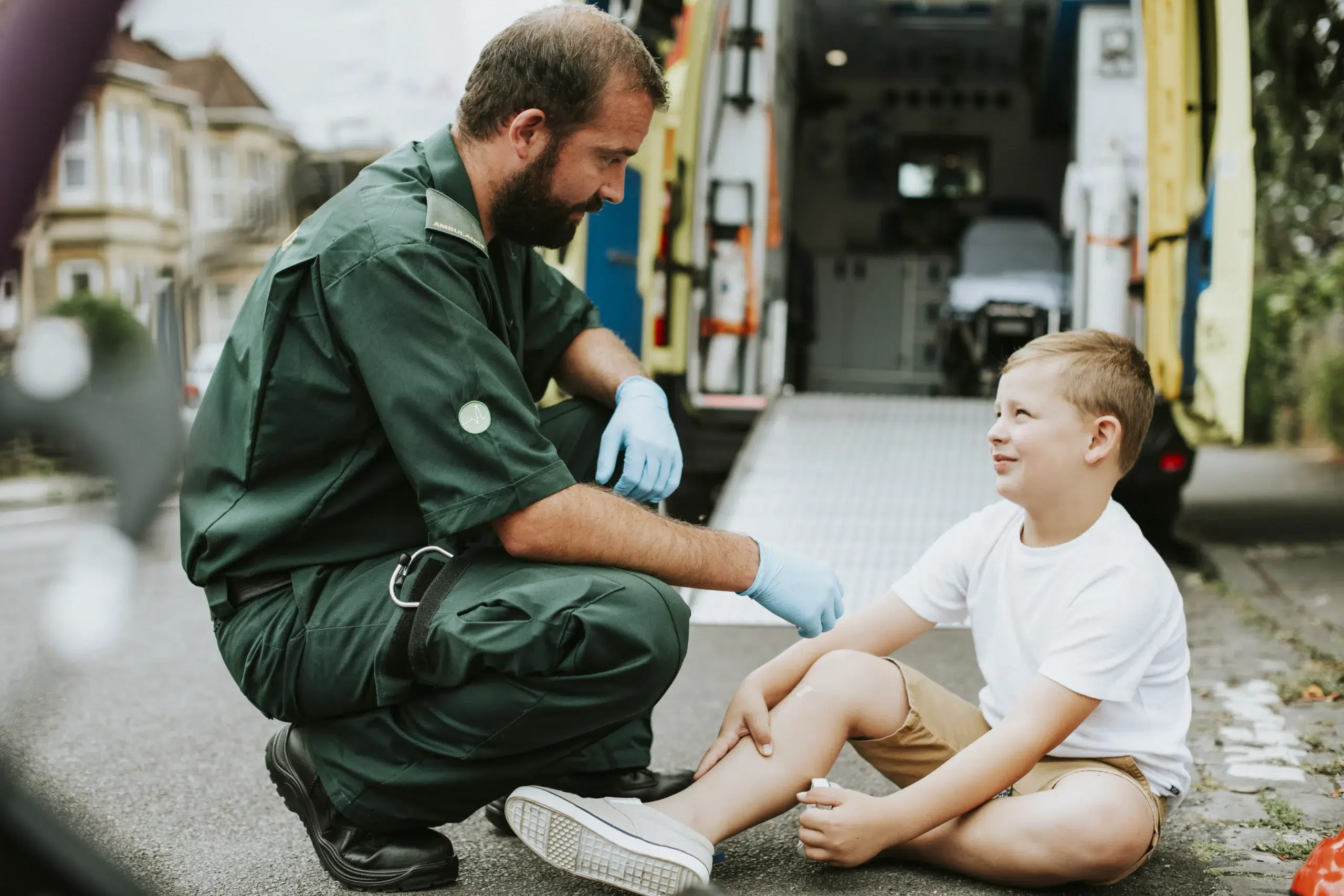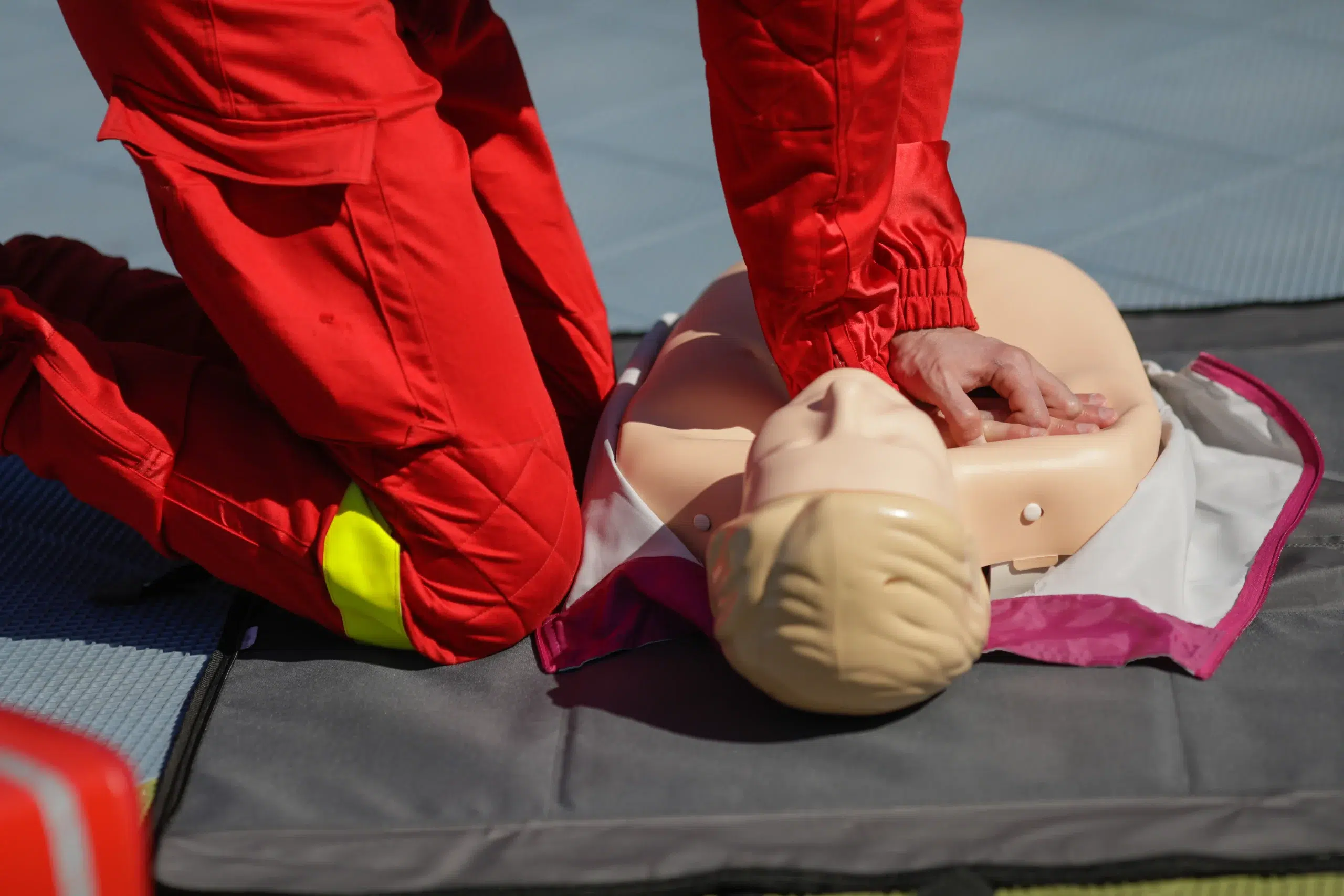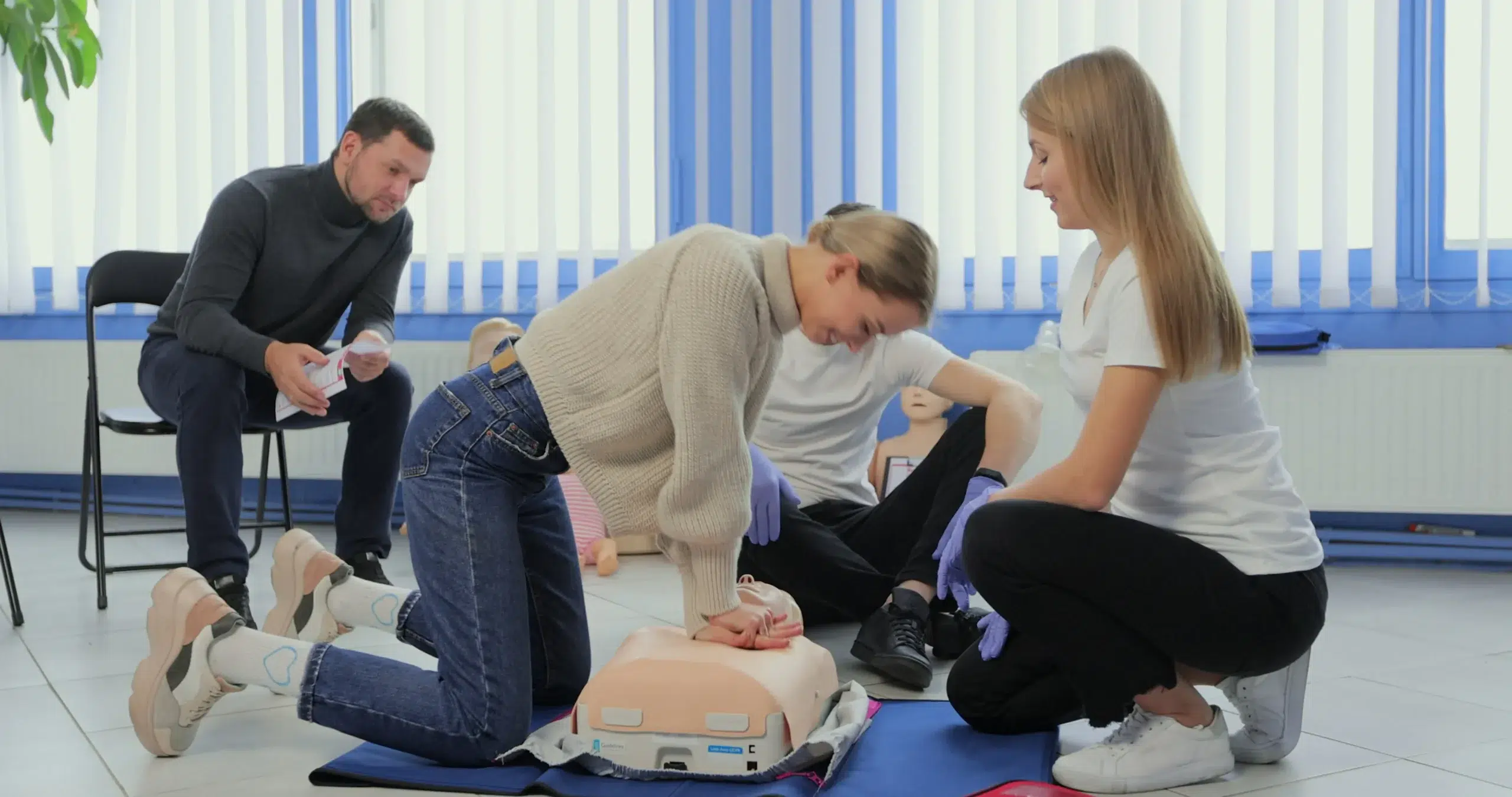Are you a healthcare provider in Daly City looking to enhance your skills in pediatric emergency care? PALS HeartCode training offers a comprehensive and convenient way to gain the knowledge and confidence you need to respond effectively in critical situations involving infants and children. This blended learning program combines online modules with in-person skills sessions, allowing you to learn at your own pace and then demonstrate your proficiency to a certified instructor. This article will delve into the details of PALS HeartCode training in Daly City, covering everything from course content and structure to the advantages of this flexible learning format. We’ll also discuss how to find reputable training centers in the area, compare pricing and schedules, and offer valuable tips for preparing for your PALS HeartCode certification.
Key Takeaways
- PALS HeartCode blends online learning with hands-on skills practice: This flexible format lets you learn at your own pace and then demonstrate your skills to a certified instructor.
- PALS certification is essential for pediatric healthcare providers: It equips you with the knowledge and skills to effectively manage life-threatening emergencies in infants and children.
- Find convenient and affordable PALS HeartCode training in Daly City: Providers like Millbrae CPR Classes offer comprehensive programs that meet AHA guidelines, often with competitive pricing and flexible schedules.
What is PALS HeartCode and Who Needs It?
PALS HeartCode is the American Heart Association’s (AHA) blended learning program for Pediatric Advanced Life Support (PALS) certification. It combines online coursework with in-person skills practice and testing. This flexible approach lets you complete the self-directed online portion at your own pace, then demonstrate your skills to a certified instructor.
Who Should Take PALS HeartCode?
PALS certification is essential for healthcare providers involved in managing life-threatening emergencies in infants and children. This includes professionals like doctors, nurses, paramedics, respiratory therapists, and other medical personnel working in emergency rooms, intensive care units, or other pediatric care settings. If your role involves leading or participating in pediatric emergency response, PALS HeartCode training can equip you with the knowledge and skills to provide effective care. Examples of professionals who benefit from PALS certification include physicians, registered nurses, paramedics, and respiratory therapists.
Benefits for Healthcare Professionals
The PALS HeartCode program focuses on improving outcomes for young patients by teaching healthcare providers how to quickly recognize and respond to respiratory distress, shock, and cardiac arrest. The course emphasizes teamwork and individual expertise—both critical in high-pressure emergency situations. This blended learning format is especially helpful for busy professionals, allowing you to fit the training into your schedule. By combining online learning with hands-on practice, PALS HeartCode ensures you can confidently apply these life-saving skills in real-world scenarios. You’ll learn to assess a child’s condition, perform CPR, administer medications, and work effectively as part of a resuscitation team. The PALS course aims to equip healthcare providers with the skills to improve survival rates for pediatric patients.
PALS HeartCode: Course Structure and Duration
PALS HeartCode blends online learning with hands-on skills practice. This flexible format lets you learn the essentials of Pediatric Advanced Life Support at your own pace and then demonstrate your skills in person.
Learn at Your Own Pace Online
The online portion of PALS HeartCode covers essential pediatric life support topics through interactive modules, case studies, and simulations. This self-directed learning allows you to practice key concepts on your own time, making it easier to fit the coursework into a busy schedule. Check with your training provider, such as Millbrae CPR Classes, for details about accessing the online materials and any deadlines for completion.
Practice Hands-On Skills In-Person
After completing the online modules, you’ll attend an in-person skills session led by an American Heart Association (AHA) instructor. This session emphasizes practical application, allowing you to practice the skills you learned online in a simulated environment. You’ll work through various pediatric emergency scenarios, from cardiac arrest to respiratory distress, using equipment like mannequins and defibrillators. This hands-on component builds confidence and proficiency in performing life-saving techniques, ensuring you’re prepared to respond effectively in real-world situations. More information about the AHA HeartCode PALS blended learning format is readily available.
Find PALS HeartCode Providers in Daly City
If you’re a pediatric healthcare provider in Daly City, finding a convenient and reputable PALS HeartCode training center is essential. This blended learning program combines online coursework with in-person skills sessions, allowing you to learn at your own pace and then demonstrate your expertise. Several providers offer this valuable certification in the Daly City area.
Millbrae CPR Classes
Millbrae CPR Classes offers American Heart Association (AHA) certified PALS HeartCode training. Located nearby in Millbrae, they serve Daly City, San Mateo, and the surrounding areas. They provide a comprehensive program that meets all AHA guidelines, ensuring you receive high-quality instruction and earn a recognized certification. Check their website for course schedules and availability. They also offer a low price guarantee for their courses.
Other Local Training Centers
Beyond Millbrae CPR Classes, you can explore other training centers in the broader San Francisco Bay Area. A quick online search will uncover additional options. Be sure to verify that any training center you consider is AHA-certified to guarantee your certification is valid and respected within the healthcare community.
Compare Provider Options
When comparing providers, consider factors like cost, schedule flexibility, and instructor experience. Some providers may offer group discounts or specialized training options. Reading reviews from past participants can also give you valuable insights into the quality of instruction and the overall learning experience. Choosing the right provider will ensure you get the most out of your PALS HeartCode training.
Advantages of PALS HeartCode Training
PALS HeartCode training offers several key advantages, combining online learning with hands-on practice. This blended learning approach allows flexibility and comprehensive training, ensuring healthcare providers can confidently respond to pediatric emergencies.
Flexible Blended Learning
The PALS HeartCode blended learning format combines online coursework with an in-person skills session. This hybrid approach offers flexibility, allowing you to learn the material at your own pace online before demonstrating your skills to an AHA instructor. This accommodates busy schedules and varying learning styles. You can review challenging concepts as needed and complete the online portion when it’s most convenient. The in-person session then focuses on applying your knowledge and practicing essential skills.
Comprehensive Pediatric Emergency Training
The PALS HeartCode course provides comprehensive training in pediatric emergency care. It covers a wide range of topics, including respiratory emergencies, shock, and cardiopulmonary arrest. The course emphasizes high-performance team dynamics and high-quality individual skills, preparing healthcare providers to effectively manage pediatric emergencies. Through simulated core cases, participants learn to identify and treat problems related to cardiac arrest scenarios, systematically assess patients, and utilize PALS algorithms. This comprehensive approach ensures you gain a thorough understanding of pediatric emergency care.
Apply Skills Immediately
PALS HeartCode training allows healthcare providers to apply their skills immediately. The online portion provides a safe and effective environment to practice managing pediatric emergencies. This simulated practice builds confidence and reinforces learning before the in-person skills session. By combining online learning with hands-on practice, PALS HeartCode ensures healthcare providers are well-prepared to respond effectively in real-world situations. You’ll be able to put your knowledge into action, making a real difference in pediatric care.
PALS HeartCode Certification: Cost and Value
Typical Daly City Pricing
The cost of PALS HeartCode training in Daly City depends on a few factors. The training provider, included course materials, and whether you choose online or in-person learning all affect the final price. Blended learning (online modules plus in-person skills testing) and fully in-person courses typically have different price points. It’s best to check with several providers, like our PALS HeartCode training, to compare what they offer and how their pricing is structured.
Discounts and Promotions
Many providers offer competitive pricing and promotions to make training more accessible. Look for deals like group rates (great for team training) and early bird pricing. Always ask potential providers about any current discounts. At Millbrae CPR Classes, we have a low price guarantee for San Mateo County, so you can be sure you’re getting a good value.
Low Price Guarantee
Finding affordable, high-quality training is essential. Some training centers, like ours, offer a low price guarantee, meaning they’ll match or beat any lower price for comparable PALS courses in the area. This commitment to affordability helps ensure access for everyone to these lifesaving skills. See our low price guarantee details for more information. We believe cost shouldn’t prevent anyone from learning these essential skills.
What to Expect in Your PALS HeartCode Course
The PALS HeartCode course blends online learning with in-person skills practice. This flexible format lets you learn the material at your own pace, then demonstrate your skills in a real-world setting. Here’s what you can expect:
Online Module Content
The online modules cover essential topics, preparing you to provide advanced life support to pediatric patients. You’ll learn to recognize and respond to respiratory emergencies, shock, and cardiopulmonary arrest. The HeartCode PALS program uses an adaptive algorithm to personalize your learning path. This means the program adjusts to your progress, focusing on areas where you need additional practice.
Skills Test Procedures and Assessment
After completing the online modules, you’ll participate in a hands-on skills session. This session typically takes about five hours, including breaks. You’ll work through simulated core cases, giving you the chance to put your online learning into action. These simulations offer a safe environment to practice and build confidence before facing real emergencies. You’ll focus on identifying and treating pediatric cardiac arrest scenarios.
Instructor Qualifications and Expertise
Your PALS HeartCode instructors are AHA-accredited, meaning they meet the AHA’s rigorous standards for training quality and effectiveness. They’ll guide you through the skills session, provide feedback, and ensure you’re fully prepared to use these skills in real-life situations. The AHA’s PALS course aims to improve outcomes for pediatric patients by preparing healthcare providers to effectively manage emergencies. You’ll learn to use high-performance team dynamics and develop high-quality individual skills.
Prepare for PALS HeartCode Success
Getting ready for your PALS HeartCode certification? Here’s what you need to know to feel confident and prepared:
Prerequisites
The PALS course equips pediatric healthcare providers—like registered nurses, advanced practice registered nurses, medical doctors, and doctors of osteopathic medicine—with the skills to manage critically ill infants and children. A strong foundational understanding of pediatric care is essential for anyone pursuing PALS HeartCode certification. This means you should already be comfortable with basic life support and have some experience in a pediatric healthcare setting. If you’re a medical student, check with your program advisor to ensure you’ve met the necessary prerequisites before registering.
Study Materials and Resources
HeartCode PALS uses an adaptive learning path personalized by your performance and confidence level. This method focuses your learning on areas needing improvement. The online modules cover a range of essential topics, preparing you to handle pediatric emergencies. Take advantage of these resources—they’re designed to help you master the material efficiently. You can find more information about the PALS course options on the American Heart Association website. Many providers, including Millbrae CPR Classes, also offer supplemental study materials and practice tests.
Tips to Overcome Challenges
One common hurdle is balancing work with the time commitment of PALS training. Plan your study schedule in advance and stick to it as much as possible. The online portion of the HeartCode PALS course offers flexibility, allowing you to learn at your own pace. Break down your study sessions into manageable chunks and integrate them into your daily routine. Even short, focused study periods are more effective than infrequent, long ones. Remember, the PALS HeartCode program provides a safe environment to practice managing pediatric emergencies, so use the online modules to build your confidence before the in-person skills session.
Maintain Your PALS Certification
Keeping your PALS certification current is essential for providing the best possible care to young patients. This section covers everything you need to know about renewing your credentials and staying at the top of your game.
Renewal Requirements and Process
PALS certification is valid for two years. To maintain your certification, you must complete a PALS renewal course before it expires. These renewal courses typically involve two parts: an online self-directed portion and a hands-on skills session. The online component allows you to review key concepts and refresh your knowledge at your own pace, while the in-person skills session ensures you’re proficient in the latest life-saving techniques. Check with your employer or certifying body for specific renewal requirements. Many providers, like Millbrae CPR Classes, offer convenient PALS renewal courses to fit your schedule.
Continuing Education Opportunities
Staying up-to-date in pediatric advanced life support involves more than just renewing your certification every two years. Continuing education is crucial for refining your skills and learning the latest advancements in pediatric care. The HeartCode PALS course offers continuing education credit, a valuable way to enhance your professional development and demonstrate your commitment to providing high-quality care. Look for courses and workshops that align with your interests and career goals.
Stay Updated on Guidelines
Medical knowledge and best practices are constantly evolving. To provide the most effective care, regularly review the latest AHA guidelines for CPR and ECC. These guidelines are periodically updated to reflect new research and advancements in pediatric emergency care. Staying informed about these updates is key to maintaining your competence and providing the best possible outcomes for your patients.
Why Choose PALS HeartCode in Daly City?
Choosing the right location for your PALS HeartCode training is an important decision. Daly City offers several advantages for healthcare providers looking for this essential certification.
Convenient for Local Healthcare Providers
Daly City’s central location makes PALS HeartCode training easily accessible for healthcare professionals throughout the Bay Area. Its proximity to San Francisco and San Mateo minimizes commute times, which is a big plus for busy professionals. With courses offered daily, from 8 am to 10 pm, seven days a week, you can find a schedule that works for you. Millbrae CPR Classes offers this flexible scheduling, making it easier to fit training into your busy work life.
Quality Training and Career Benefits
The AHA’s PALS HeartCode course gives healthcare providers the skills to confidently manage pediatric emergencies. This training covers critical situations, from respiratory emergencies and shock to cardiopulmonary arrest. The blended learning format combines online learning with in-person skills sessions, allowing you to learn at your own pace and then practice your skills in a realistic setting. This comprehensive approach ensures you gain both the knowledge and practical experience to provide effective care. A PALS certification shows your commitment to high-quality pediatric care, a valuable asset for career advancement.
Meet Employer Requirements
Many healthcare employers require PALS certification, particularly for those working directly with children and infants. This certification validates your skills and knowledge in pediatric advanced life support, ensuring you meet the standards to provide safe and effective care. Your PALS certification card is valid for two years, then you’ll need to recertify. Daly City CPR Classes can help you stay current with your certification, ensuring you continue to meet employer requirements and maintain your expertise in pediatric emergency care. Staying up-to-date demonstrates your dedication to professional development and the well-being of your patients.
PALS HeartCode Participant Feedback
Success Stories and Testimonials
The PALS HeartCode blended learning format gets rave reviews from healthcare providers. They appreciate the flexibility of online learning combined with the essential hands-on skills sessions. One participant described the PALS HeartCode course as a game-changer, saying, “This approach not only prepares you to recognize and intervene in pediatric emergencies but also boosts your confidence in applying those skills.” The hybrid nature of the course, with its online component and in-person skills session, allows for a deeper understanding of the material. Another participant highlighted the practical application, noting how the simulations reinforce the “evaluate-identify-intervene” sequence crucial for managing pediatric cardiac arrest scenarios. This hands-on practice builds confidence and competence in critical situations. Many find the blended learning approach particularly helpful for mastering the PALS material.
Professional Development Impact
PALS HeartCode training has a significant impact on professional development for healthcare providers. The online modules cover a wide range of topics, from basic life support to advanced life-saving techniques for pediatric patients. This comprehensive training ensures healthcare professionals are well-equipped to handle various pediatric emergencies. The flexible, blended learning format is particularly beneficial, allowing participants to learn at their own pace and then demonstrate their skills in person. This adaptable approach makes PALS HeartCode accessible to busy professionals seeking certification. The program’s focus on high-performance team dynamics and individual skills is invaluable for career advancement and provides a solid foundation for delivering high-quality patient care. Participants appreciate the ability to complete the online portion on their own schedule before attending the in-person skills session.
Related Articles
- PALS HeartCode San Mateo: Your Certification Guide – Millbrae CPR Classes
- AHA PALS Classes in Millbrae, CA – Millbrae CPR Classes
- ACLS HeartCode Daly City: Your Complete Guide – Millbrae CPR Classes
- Best Online ACLS Classes in Daly City – Millbrae CPR Classes
- CPR Renewal in San Mateo: Your Complete Guide – Millbrae CPR Classes
Frequently Asked Questions
What exactly is involved in the PALS HeartCode blended learning format? PALS HeartCode combines online learning with a hands-on skills session. You’ll work through interactive modules, case studies, and simulations online at your own speed. Then, you’ll attend an in-person session with an AHA instructor to practice your skills and demonstrate competency.
How long does it take to complete the PALS HeartCode training? The online portion’s length depends on your learning pace. The in-person skills session typically lasts around five hours. Contact your chosen training center for specifics.
How much does PALS HeartCode training cost in Daly City? The cost varies depending on the training provider and what’s included. Check with different providers, like Millbrae CPR Classes, for their pricing and any available discounts. Don’t hesitate to ask about group rates or special offers.
How do I find a reputable PALS HeartCode training center near me? Look for AHA-certified training centers in your area. Millbrae CPR Classes serves Daly City, San Mateo, and surrounding areas. Reading online reviews and comparing providers based on cost, schedule, and instructor experience can also help you make the best choice.
What if I don’t work in a hospital setting? Do I still need PALS certification? While PALS is often associated with hospital settings, anyone involved in pediatric emergency care can benefit. If your job involves responding to emergencies with infants and children, PALS certification can equip you with the skills to provide effective care.






